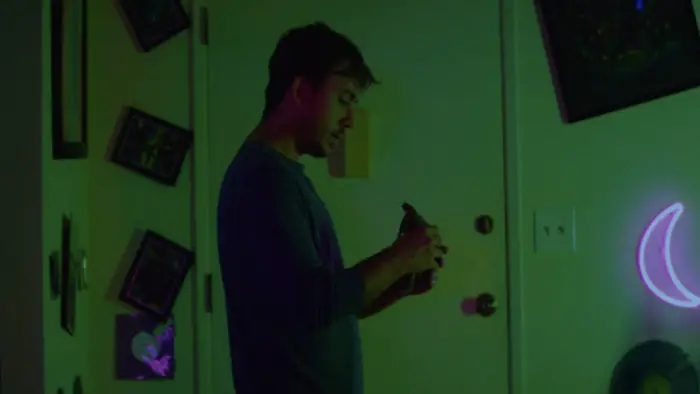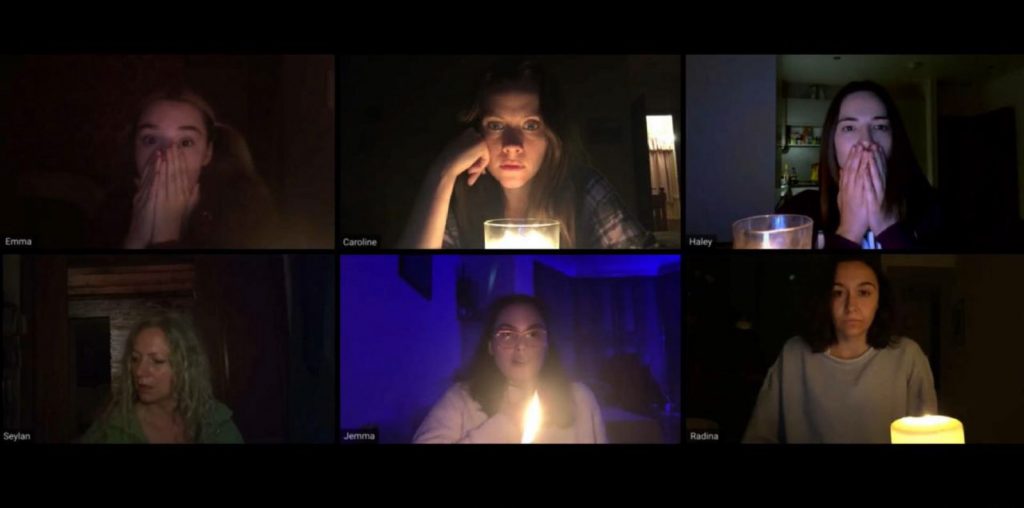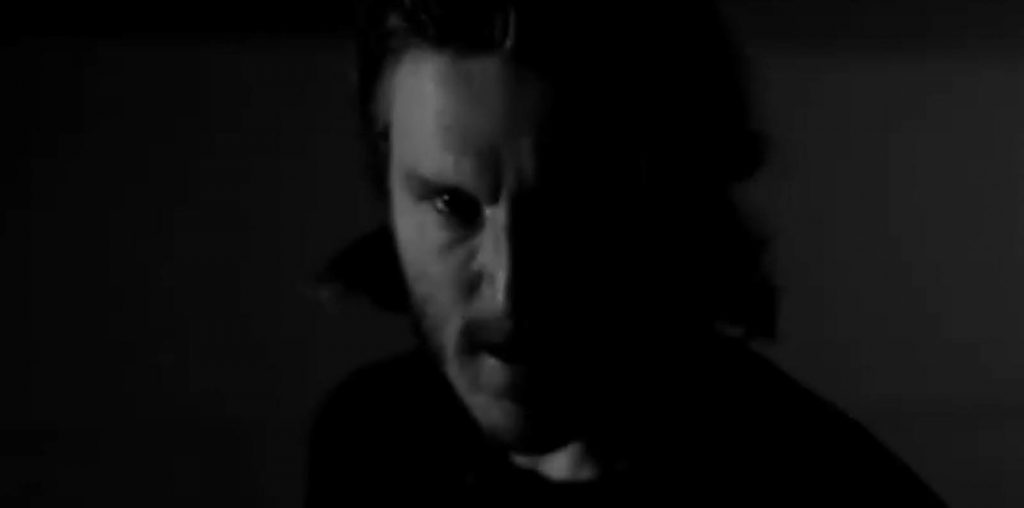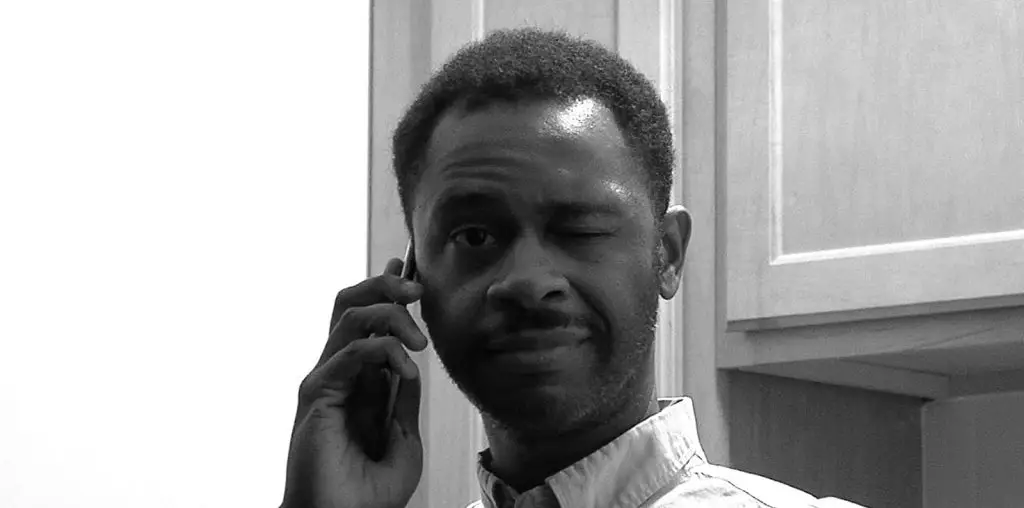
Austin Allan James makes his feature-length debut with the mysterious drama Who’s With Me?, which he wrote and directed. The film begins with Marcus (Ryan Sherrill) waking up in his apartment, though he has no memory of getting there while being out the night before. His television is not working, save for broadcasting an emergency signal stating that Ryan’s area is under quarantine and that he should remain in place for the foreseeable future.
While he lives alone, Ryan is able to communicate with his neighbor Aileth (Emma Julia Jacobs), as they can hear each other through their shared wall. They while away the time by getting to know each other, playing board games, and generally keeping hope up for one another. But as time passes — how much though, they do not know — the broadcast messages become vaguer and grimmer, causing the friends to lose their sanity and will to live.

“…Ryan’s area is under quarantine and…he should remain in place for the foreseeable future.”
Who’s With Me? has a lot going for it, not the least of which is the acting. Ryan Sherrill is the only person ever seen on screen, meaning he, by design, must carry a lot of the movie. He manages to do so capably, as he proves to be an imminently likable screen presence and believably goes from a little anxious to annoyed, angry, and then (possibly) crazy as the story progresses. It’s a lot to ask for any actor, much less one’s first feature, but Sherrill is fantastic. When confiding to Aileth that he feels like the world’s most normal, boring guy, Sherrill brings a certain level of pathos and sadness to the dialogue that gets the audience to empathize with Ryan.
Equaling him in every way is the heard but never seen Emma Julia Jacobs. In some ways, voice acting is more challenging than appearing on screen, as one can only use their voice, as opposed to full body language, to convey the nuances and thoughts of any given character. Jacobs has an even harder go of it, as she’s not playing an animated character who is drawn in a way to get across the appropriate emotions. But the actress comes across as charming and sweet in every scene. After Ryan blows off some steam by boxing his punching bag with metal blaring out of his speakers, he apologizes for the music being so loud. Aileth responds that she doesn’t mind and even likes the music he was playing. Jacobs turns this into a sincere moment, as opposed to a tenet appeasing a neighbor during a difficult time.
Writer-director James makes excellent use of the single setting location, Ryan’s apartment, as the film never becomes visually stagnant. During the boxing sequence, he changes the lighting, director of photography, Stephen Nguyen, shoots in a totally different style, and utilizes more intense angles, so it is visually distinct from the majority of the movie. While that is certainly not the only example of such stylish moments, it is the easiest one to cite with spoiling anything. Riley Leggin’s score also beautifully adds to the strange atmosphere and claustrophobic atmosphere.

"…a great springboard for all involved..."


